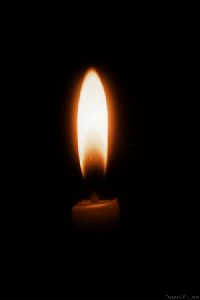Always, in the process of writing, I am convinced that I am grasping toward greatness. It seems like the most important thing in the world. Even when I’m laboring through an uncooperative first draft and obviously mired in muck that will all have to be cleared away in the second, I feel like what I’m doing is vital and rich and worthwhile.
The final product is never quite what I expected. Don’t get me wrong, I love my own books, but they are all drastically flawed. They inevitably grow up in ways I didn’t really plan or expect. I’m enough of a control freak that this always bothers me a little, but I also know it’s unavoidable. In fact, it’s a good thing. It means your work has life and energy. So you say goodbye to your little book, wish it well, and start your next book, full of the fresh misguided conviction that this time you’ll see it through all the way and it will be perfect and magnificent.
That’s how it is for me, anyway. And probably it’s for the best. Without a deluded sense of self-importance, how would I find the energy to lift pen to paper?
Probably to the reader, a book like Spark seems like a frolic, a trifle. For good reason. It is a frolic. It is, in its own way, trifling. But this isn’t necessarily a bad thing. My first professional review (all right, it was from Publisher’s Weekly, but it was only a contest, and the book was never published) called my book “sprightly”—it had a “sprightly tone.” At first, I wondered if that wasn’t just a bit belittling. Sprightly isn’t, perhaps, the most dignified adjective to apply to work of literature. But eventually I appreciated it. I even came to embrace it or at least the playful energy it implies. Even in a serious story, prose can frolic a bit. Nabokov could be sprightly. So could Melville, not to mention some of my other personal favorites like Delany and Tiptree. It implies, I think, both facility and agility.
Or maybe I’m just trying to put the best face on it.
Consider Spark. It’s certainly got a light feel to it, but structurally, the novel’s tone is inverted. Even subverted. The apparently serious story with the apocalyptic overtones (the pocket universe, the skulks, the Duchess) is absurd, almost parodic. And it’s ultimately trivial. It doesn’t amount to anything. Meanwhile, the apparent trivia of day-to-day life—boyfriends and basketball and friendship and loyalty— that is what the story is really about. That, obviously, is what really matters. That is what lasts.
Said another way? (big theme here, watch out): The great machinery of the universe is inscrutable and inexorable. When we get too close to it, we are often threshed. We, threshed, rise up, dust ourselves off, and start reconnecting the fragmented bits of our reality. ‘Cuz that’s life.
Does this hifalutin bit of analysis mean I think Spark is a Great Book, worthy of term papers and Spark(ahem)Notes? Naw. Of course not. When the great cataclysm approaches, and the Powers That Be prepare the rocket-propelled time capsule, filling it with those Works of the Once Great Human Race that will justify our existence to the unknown civilization that finds the floating space library, Spark will not be onboard.
But this sad truth does nothing to quell or belie the impulse behind the writing. I don’t set out to write immortal books. I mean, who does that? I may hope for greatness, but mostly I think of a story, and if it intrigues me enough, I start writing.
But that process is, all by itself, magical and amazing. It’s amazing that we want to do it. It’s magical that we can. We are homo scribens, the race that writes, the storytelling species. Locking into that impuls e means messing around with greatness, with divinity. My goofy novel came from the same place as Lolita, as The Poisonwood Bible, as Moby Dick. In those quiet, passionate moments, when we’re dancing on the third rail of creativity, we catch a lightning glimpse of an immortal face, we hear the nonsensical muttering of the muses.
e means messing around with greatness, with divinity. My goofy novel came from the same place as Lolita, as The Poisonwood Bible, as Moby Dick. In those quiet, passionate moments, when we’re dancing on the third rail of creativity, we catch a lightning glimpse of an immortal face, we hear the nonsensical muttering of the muses.
How can we come away from that experience untouched by greatness?
Those muses, those angels, do have a message you know, a very simple one: We are here. We are real. And all of our twisting, writhing, passion-filled, agonized creations are nothing but a reflected bit of that seemingly infinite light. A candle flame’s worth. Without even meaning to, without even understanding, we are passing on that message.
They are here. They really are.